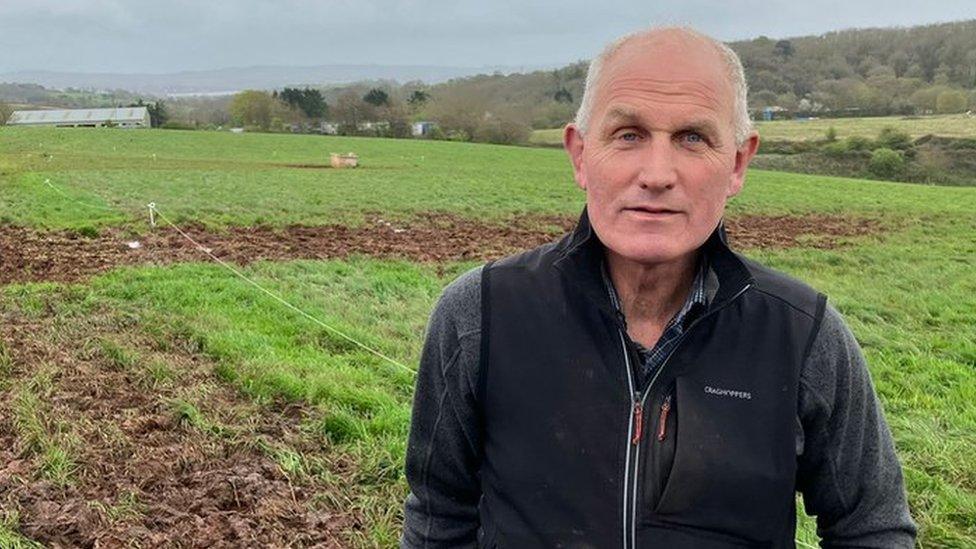Nature reserves waterlogged after 'wettest winter'
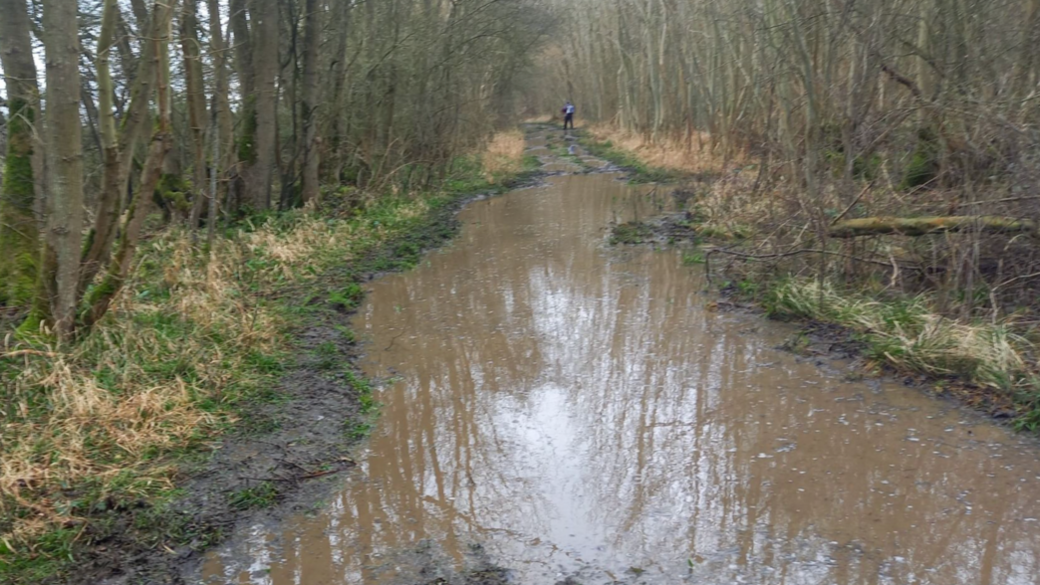
Gamlingay Woods in Cambridgeshire have been affected by the wet weather
- Published
Nature reserves across the East of England remain waterlogged after one of the wettest winters on record.
Teams working across sites in Bedfordshire, Cambridgeshire and Northamptonshire said that conditions were the wettest they "have never seen”.
According to the Wildlife Trust for the counties, England has had the highest level of rainfall over any 18-month period since Met Office data began back in 1836.
Cambridgeshire reserves manager Matt Hamilton said: “There’s no update on [the] re-opening of the sites that are currently closed."
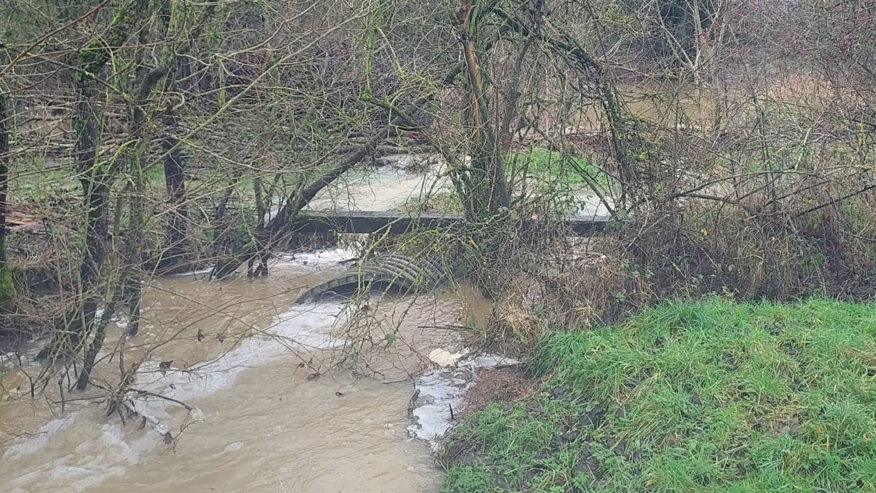
Flooding at Strawberry Hill in Bedfordshire
He added: "The woods are the wettest that we have ever seen at this time of year - they would be considered ‘extra wet’ even if it was still mid-winter."
Environment Agency data has shown that almost every river in England has been exceptionally high, with some reaching their highest flow on record.
Chief executive for the region's Wildlife Trust, Brian Eversham, said: "With the wettest winter on record following a couple of years after the 40°C heatwave, few people can doubt that the climate has changed, and is going to change even more.
“Wetter winters are certainly bad news for many of our woodland flowers unable to cope with waterlogged soils, and mild, wet winters are not good for animals that hibernate."
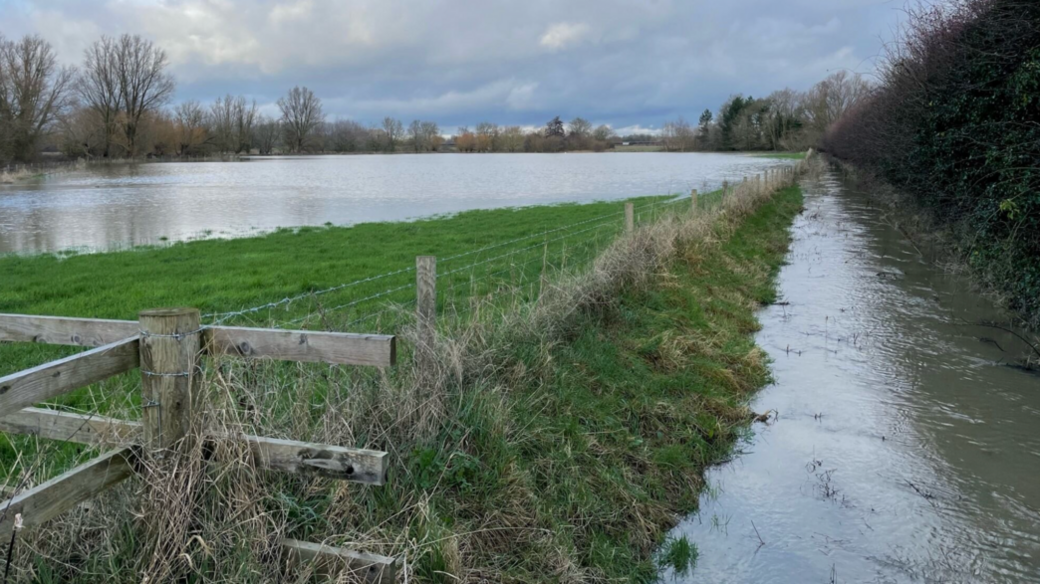
Excess water is being retained at Trumpington Meadows in Cambridgeshire
At the Greenway, in the Nene Wetlands reserve in Northamptonshire, repairs to footpaths will be “necessary” once the flood waters recede.
Conservation director for the region's Wildlife Trust, Matt Jackson, said: “Extreme weather always has winners and losers. Wet spring weather, for example, can affect the breeding of small birds like blue tits - that may be better news for the butterflies whose caterpillars make up their food supply."
Follow East of England news on Facebook, external, Instagram, external and X, external. Got a story? Email eastofenglandnews@bbc.co.uk, external or WhatsApp 0800 169 1830
Related topics
Similar stories
- Published11 March 2024
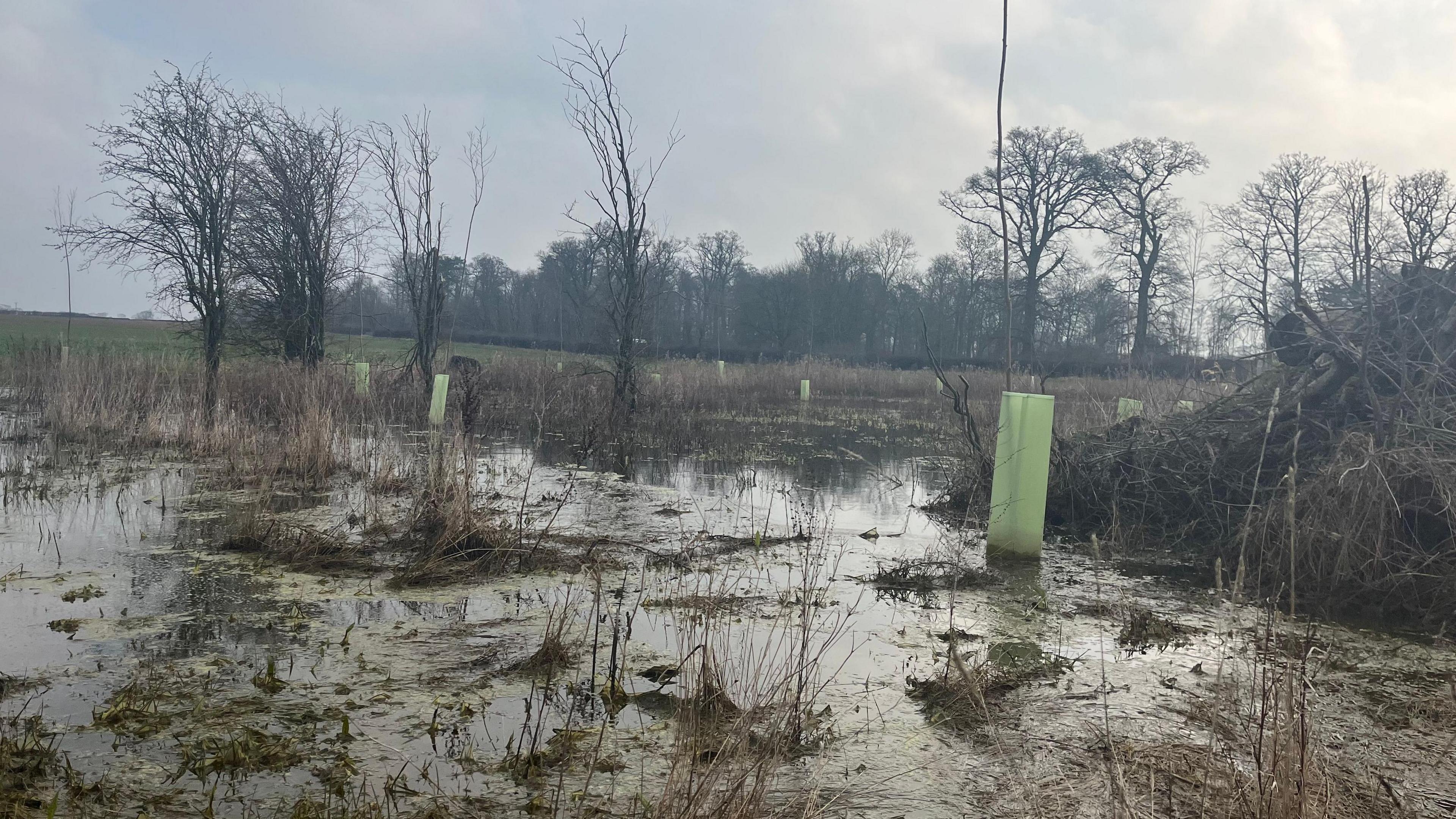
- Published5 April 2024
